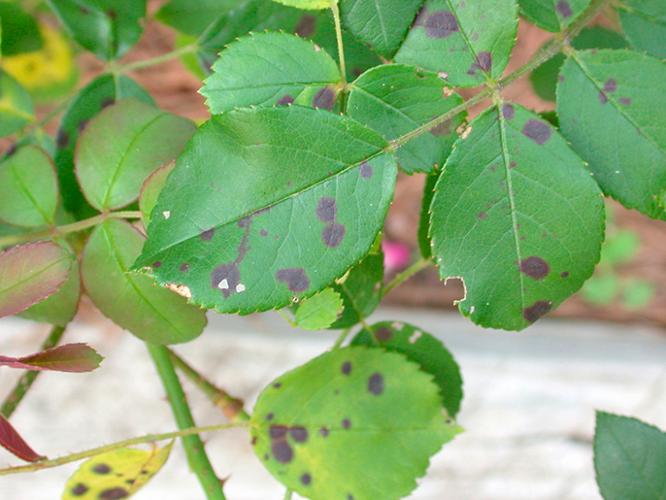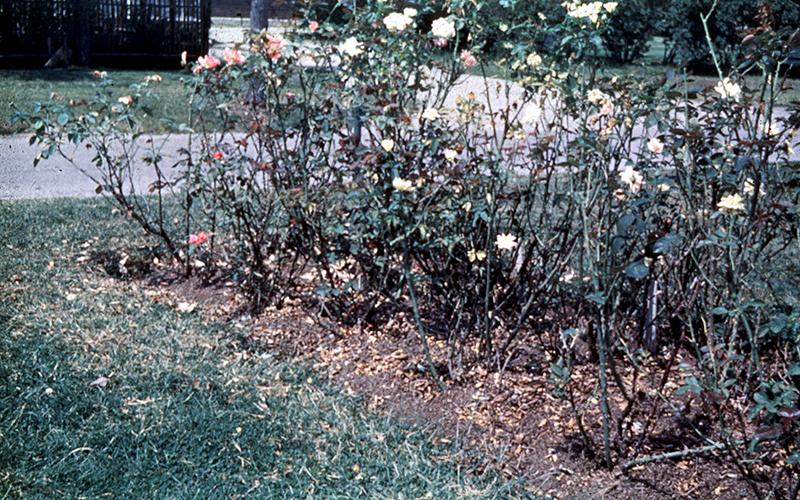picture of the week
March 23, 2020
Reduce Defoliation From Rose Black Spot; Plant Tolerant Cultivars
Gail Ruhl; Senior Plant Disease Diagnostician
John Bonkowski; Plant Disease Diagnostician
Roses are a popular landscape and garden plant in Indiana. Black spot, caused by the fungus Diplocarpon rosae, is the major foliar disease of roses in Indiana. It is a serious problem every year under our warm, humid, growing conditions. Infected leaves become spotted, turn yellow and drop prematurely from the plant. Premature defoliation decreases plant energy reserves and results in reduced flowering of roses. Rose fanciers wanting to maintain good health of their susceptible rose cultivars are usually obligated to use repeated applications of fungicides throughout the growing season. If rose growers could grow genetically resistant or disease tolerant roses, they would benefit from improved performance and reduced fungicide use.
For more information on black spot of rose and rose cultivars resistant to the disease, see Dr. Janna Beckerman's article: https://www.purduelandscapereport.org/resource/rose-black-spot/
Click on the "Learn More" tab to download the article.
Or go to the Purdue Education Store and search for article BP-139-W:
Click image to enlarge



